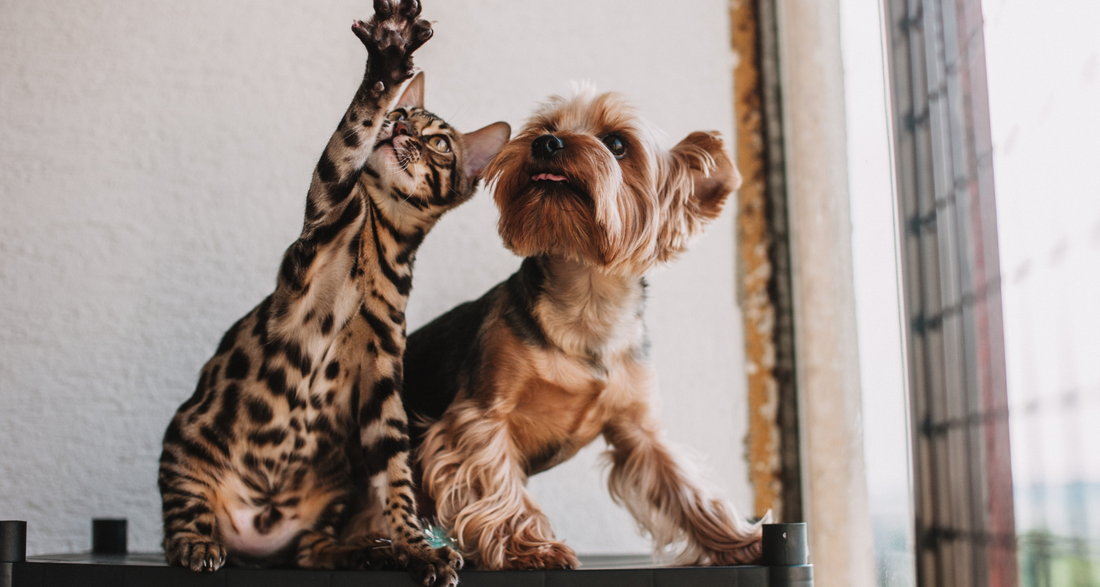A lot of factors can alter the delicate balance of good bacterias at work in the intestinal transit of your pet.
Approximately 70% of your pet's immune cells live in their gut. A healthy and balanced immune response largely depends on a strong community of beneficial bacteria.
Reinforcing and feeding a colony of good bacterias with the use of pet specific probiotics on a regular basis helps in the following ways:
1. Balancing immune functions. Nearly 70% of your companion's immune system is found in his digestive system, from an early age and throughout his life;
2. Facilitates the absorption of nutritional elements in its food.
3. Reduces negative effects in periods of stress (transportation, appointments with veterinarians, groomers, and other professionals, new environments, moving, changes in routine, and so forth).
4. Helps suppress soft, stinky, or hard stools and flatulence that usually follow periods of stress.
5. Improves coat health by helping to eliminate toxins.
6. Boosts cell renewal to help primary organs do their work.
7. Rebalances the number of good bacteria according to the demands of the immune system (allergens and vaccination).
8. Prevents adverse effects of a dietary change (helps prevent disturbances in intestinal flora).
9. Reduces problems of bad breath while favouring long term stability of oral bacteria, which encourages maintenance of good teeth.
10. Improves mood and behavior: close to 95% of serotonin - the chemical messenger of happiness- is produced by beneficial gut bacterias. With good intestinal health your pet should have a better chance of being happy and well-behaved!
When it comes to choosing a good probiotic for your pet, be sure to give them a product that is intended for their species.
Indeed, each animal species has a specific bacterial flora; therefore, giving unsuitable probiotics is not only useless, but can cause damage to its bacterial flora and thus compromise its protective activity.
Our expertise over the years has allowed us to develop formulas where our prebiotics are in symbiosis with our probiotics to promote good bacterias.
Discover our probiotics.
1 According to Dr. Randy Kidd, “The ‘gut associated lymphoid tissue’ (GALT) is the largest immune organ in the body, consisting of several aggregates of lymphoid tissues found throughout the lining of the gut wall. It produces a variety of lymph cells and thus offers a variety of immune functions.


